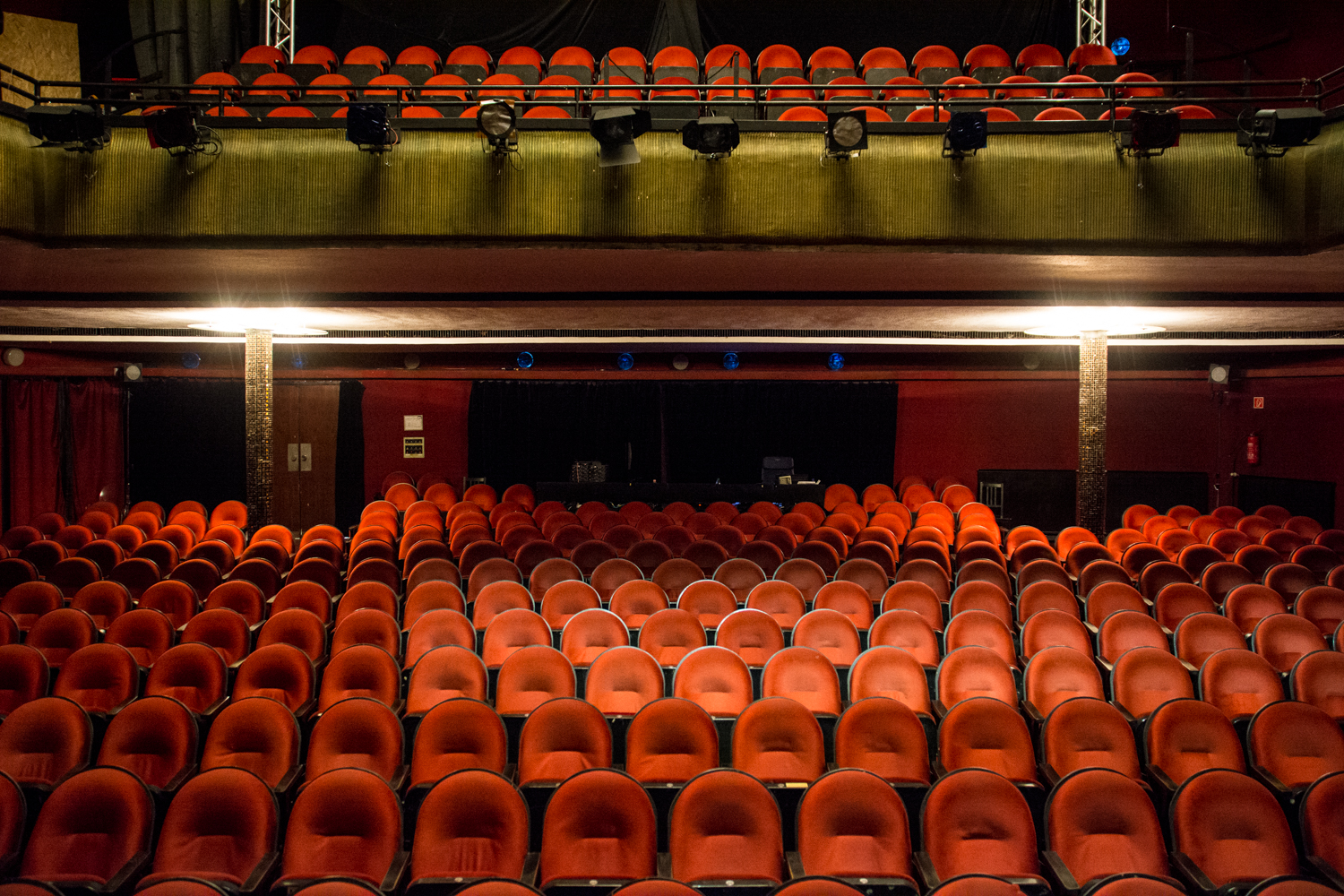6szín – One for all!
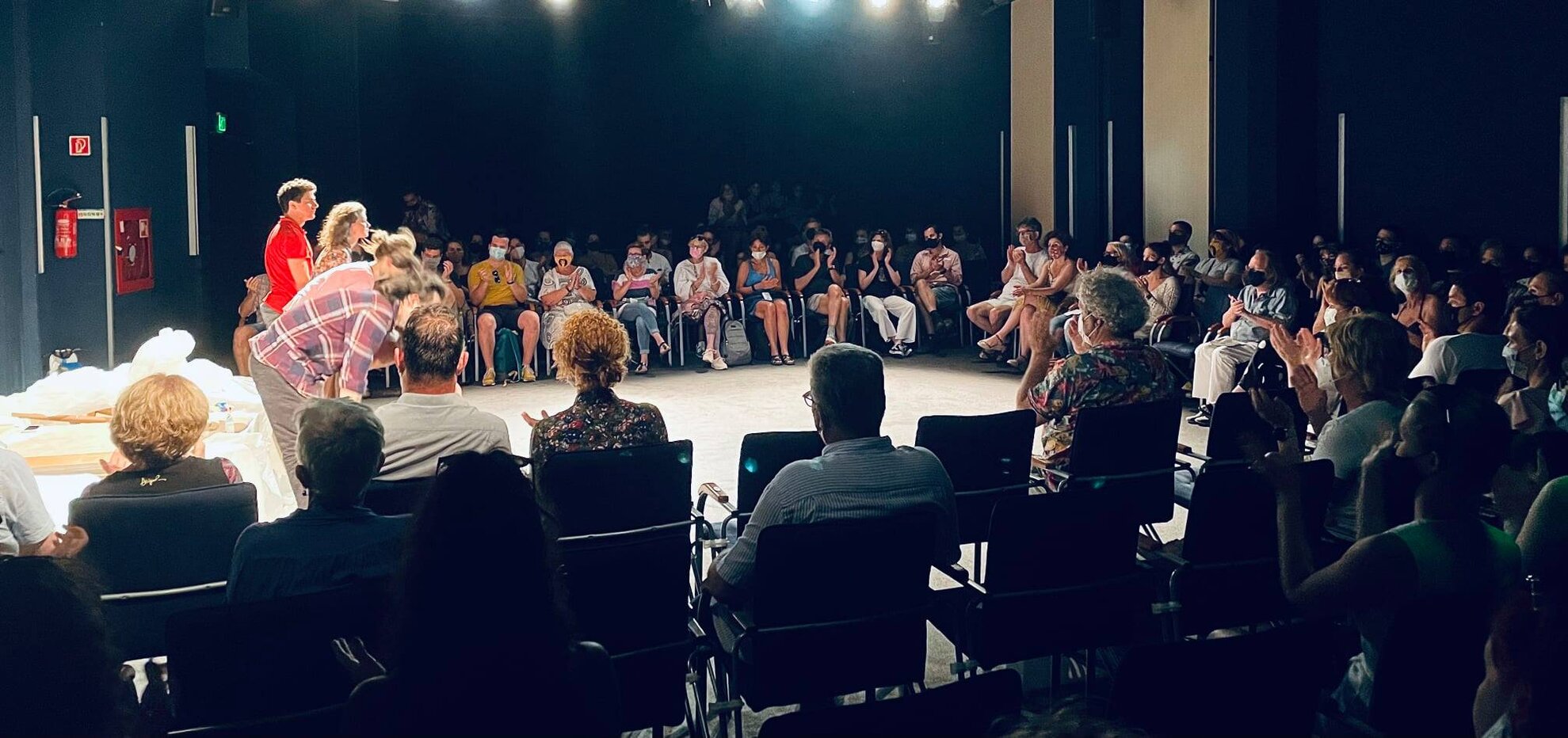
6szín, its name previously spelled out as the Hatszín Theatre before its numeric rebrand, has recently been re-organised. The basic concept, however, remains in place. This is still an inclusive theatre, all-arts space and cultural hub. Apart from productions developed in-house, it provides a home to shows staged by 13 other creative groups. Browsing through the repertoire, you soon realise that 6szín is not primarily a theatre of experimentation, but rather of entertainment. It's a bit like an artistic folk theatre, where everyone can find what they're looking for, from a Molière comedy to contemporary Hungarian and international plays. Literary evenings also feature. 1066 Budapest, Jókai utca 66
Átrium Színház – Bauhaus cinema
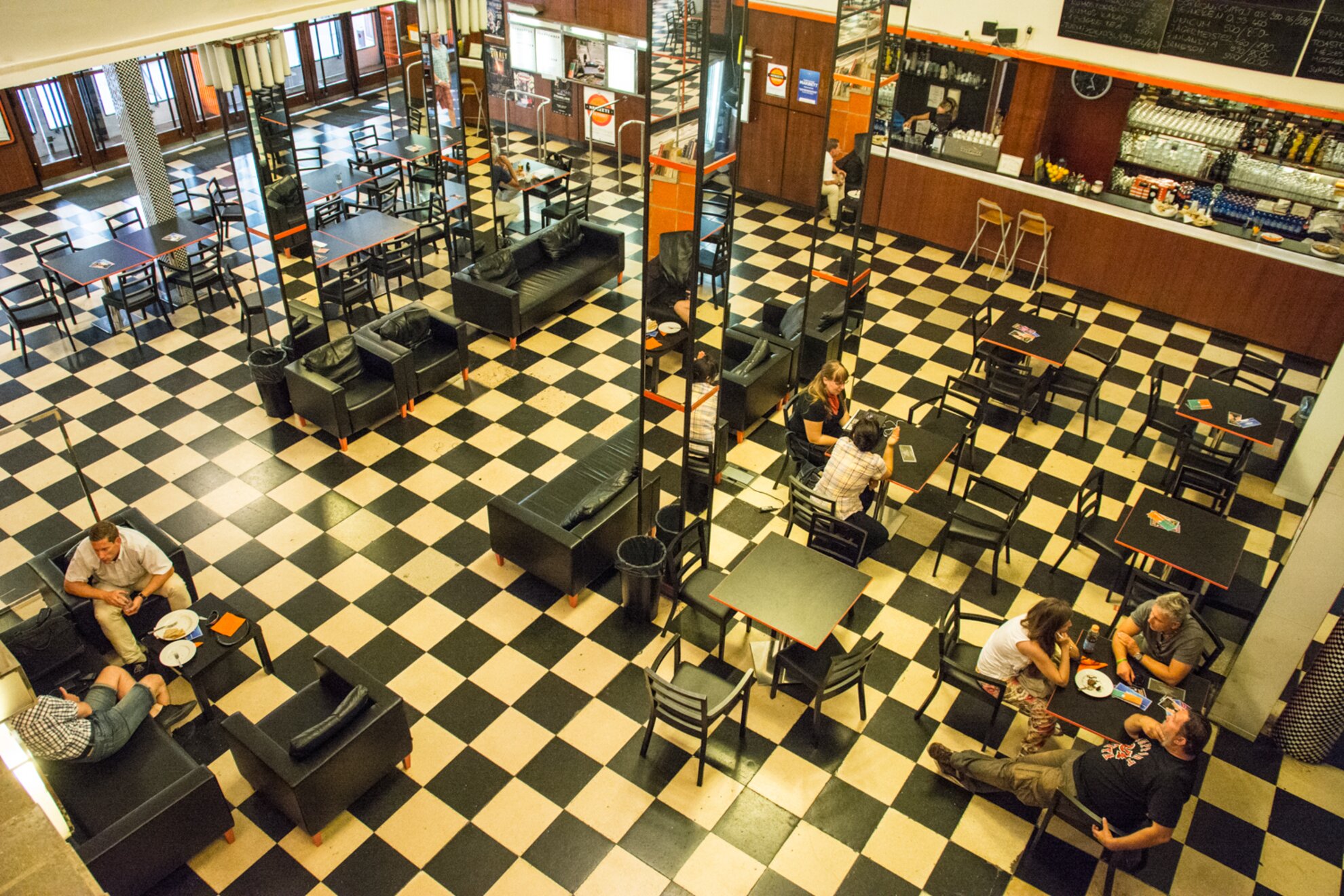
The Átrium once hosted a cinema on the first two floors of the building. The upper levels of this Bauhaus property, designed by the then prolific Lajos Kozma, are private apartments. The cinema operated here from 1935 to 2001, remaining closed until its reopening in 2012 as a theatre, bistro, contemporary art gallery and much more. There are a great number of socially critical but entertaining shows at Átrium, usually staged together with independent company Kultúrabrigád. Other alternative troupes, such as Delta Production, also bring their performances here. 1024 Budapest, Margit körút 55
Bethlen téri Színház – Colourful past
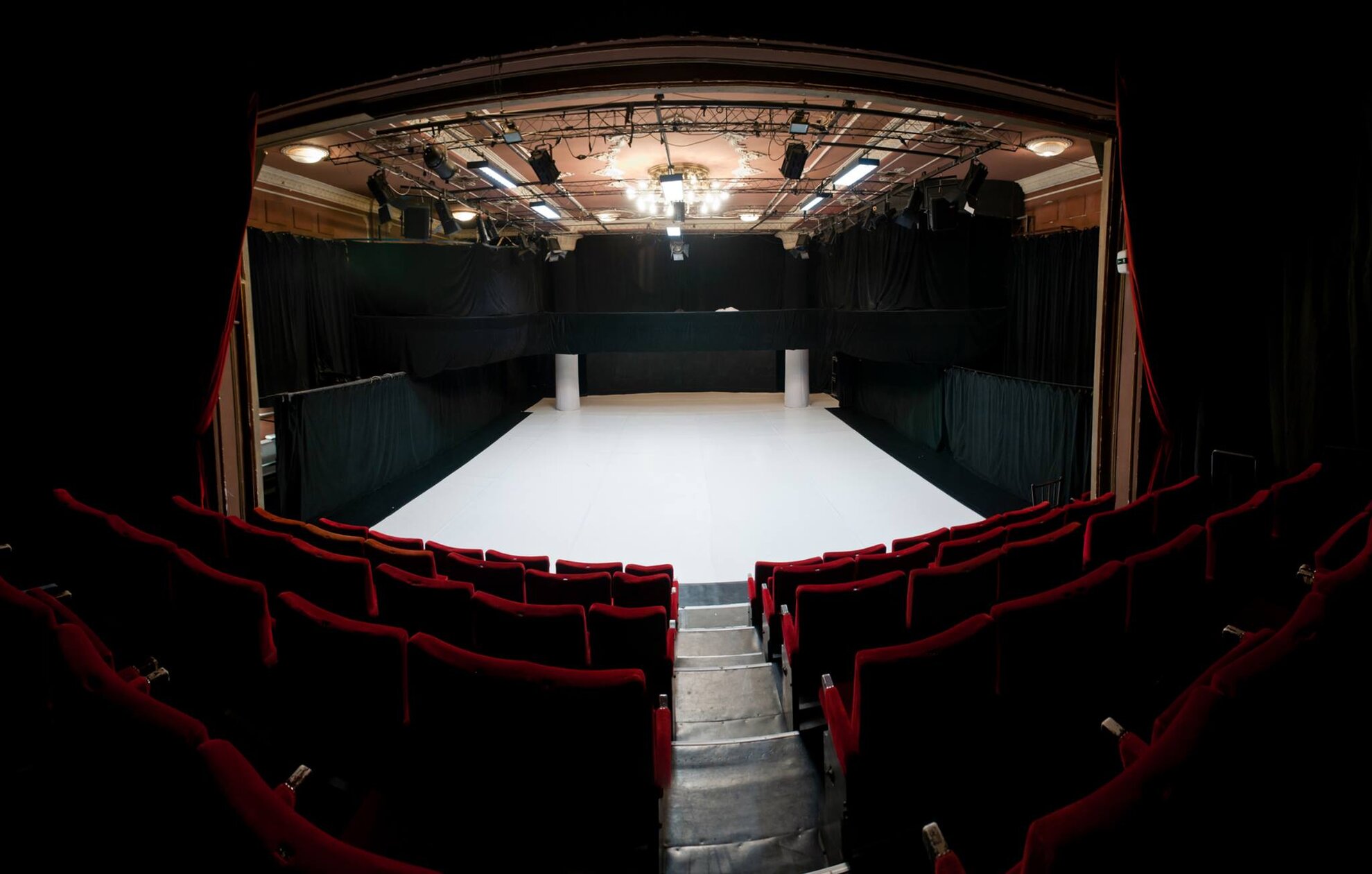
Passing its innocuous façade, few would appreciate the illustrious and adventurous past behind the Bethlen tér Theatre. It opened in 1929, first as a cabaret and then a playhouse. Top actors of the day performed here, forming the Independent Theatre Movement, but the authorities were unimpressed and closed it down in 1937. Thereafter, it became a warehouse, then a cinema, and even the Rock Theatre during the '90s, but only a single play was performed. Officially reopening in 2012 as an inclusive, production theatre, Bethlen tér had been used for shows for a good decade beforehand, particularly by the Yvette Bozsik dance company and the Central European Dance Theatre. Art-Színtér and smaller troupes also feature, as well as Hungarian-language productions by companies operating beyond Hungary's current borders. More recently, it staged the English-language circus drama, Great Stories of Budapest. 1071 Budapest, Bethlen Gábor tér 3
FÉM Arts & Café – A cellar full of noise
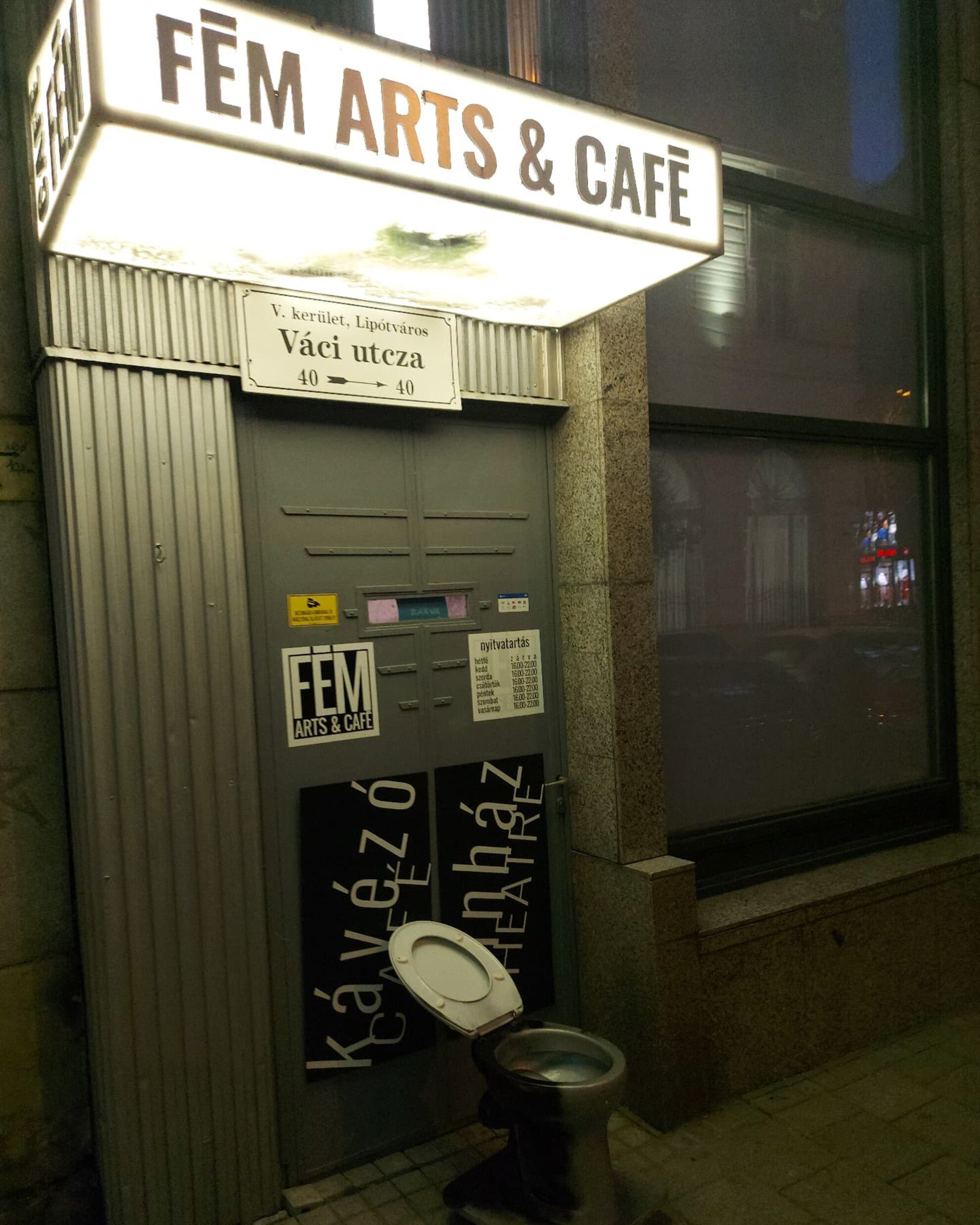
FÉM Színház (‘METAL Theatre’) grew out of a grassroots initiative to become one of the most popular independent venues today. Attila Cziczó and Máté Horváth, their backgrounds in student theatre, and former basketball coach Anikó Jendrics, came together to open a small playhouse on Orczy tér deep in dark District VIII. They then found an abandoned coal cellar in the city centre that they converted with their own hands, which is how FÉM was created. Shows are written and directed by Cziczó and form the bulk of the agenda, but sometimes they also put on outside productions for variety and to show goodwill. 1056 Budapest, Váci utca 40 (entrance from Irányi utca)
Fészek Művészklub – If walls could talk
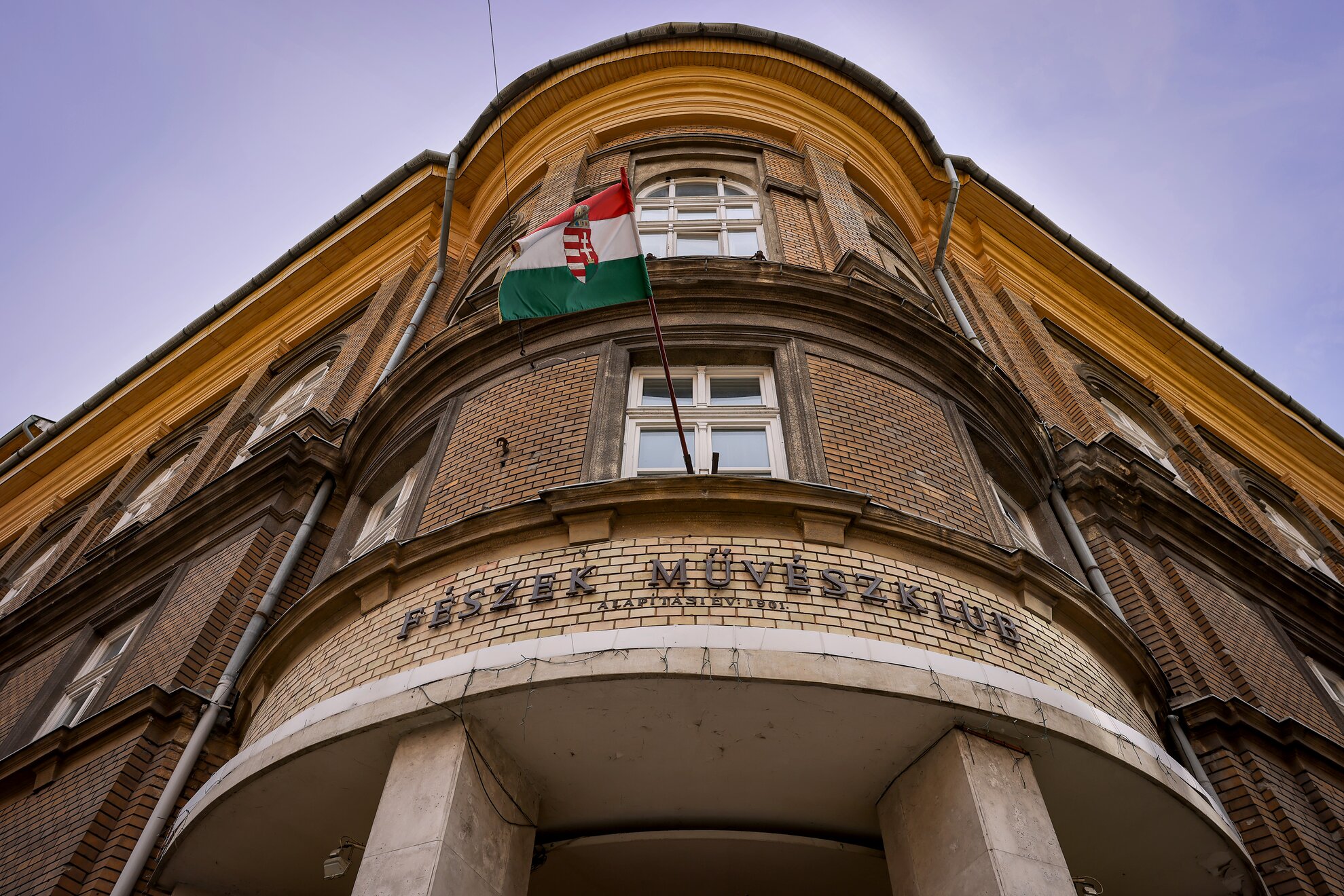
The Fészek Artists’ Club was originally set up to bring together artists from different generations and backgrounds under one roof. In these elegant surroundings, they could talk, create and share their semi-finished works. Then the place gradually changed, welcoming an increasing number of outsiders with an interest in the arts. Today, the Fészek (‘The Nest’) retains its original function but also operates as a multi-arts institution, where theatre, cabaret and literary evenings are held in different rooms, along with a film club, concerts and exhibitions. A restaurant has long filled the convivial courtyard. 1073 Budapest, Kertész utca 36
Jurányi ház – New kids on the block

Since opening in 2012, Jurányi has become a major venue for independent theatre
in Hungary. Füge Production, in particular, operates here, along with other alternative companies such as Orlai and DEKK. Mainstream theatres are also featured, the József Katona in Budapest, the Csokonai in Debrecen and the National in Miskolc. But that’s not all. This old, zigzag-shaped former school building houses rehearsal rooms and offices, workshops and showrooms, several stages and a former canteen that is now a café and gallery. The aim is that members of Hungary's diverse theatrical scene, along with more established professionals, can find a permanent common space, available to all. 1027 Budapest, Jurányi utca 1-3
MU – The Hungarian underground
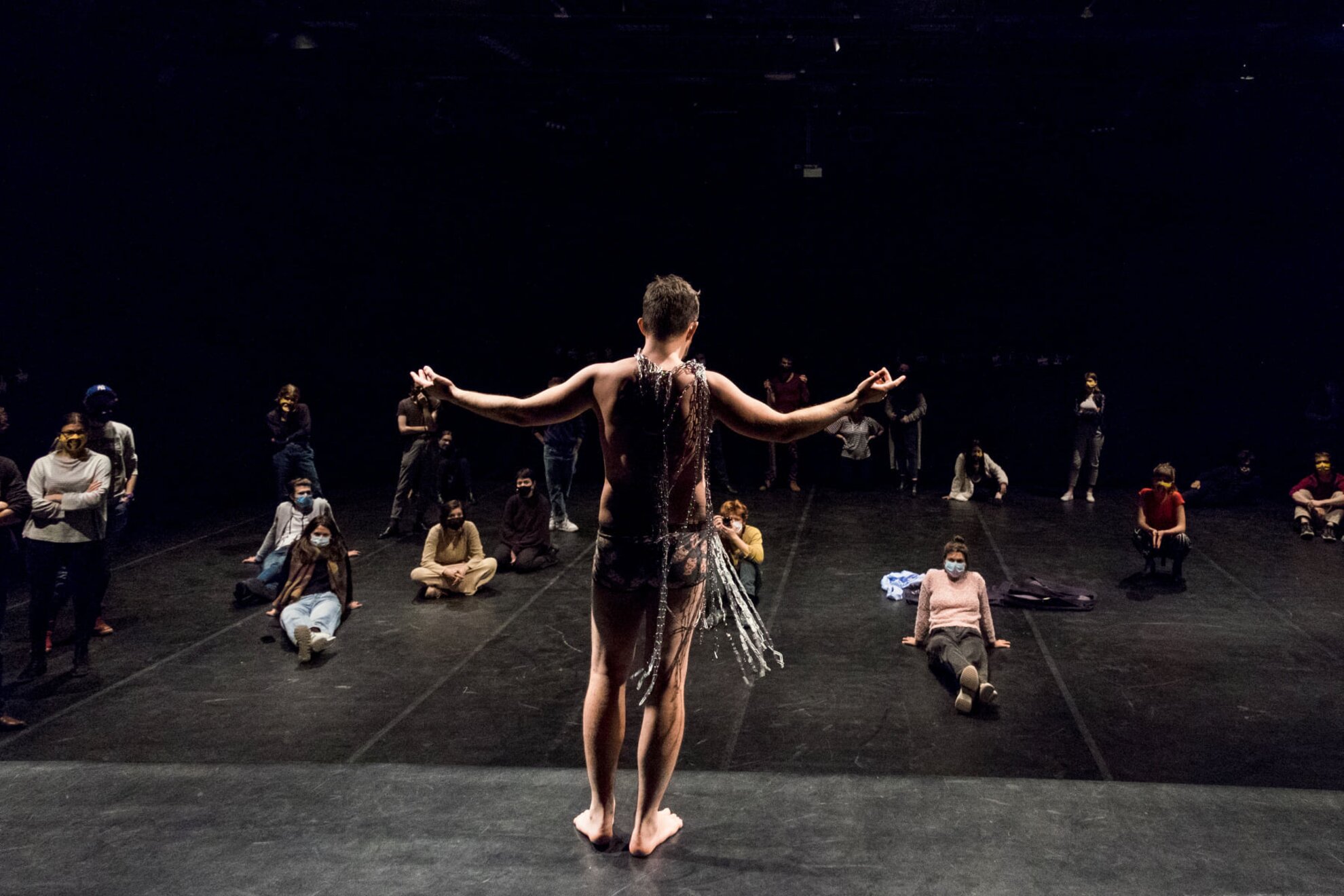
MU Theatre has been operating in the former building of Lágymányosi Community House for more than 20 years. The MU in its name means more than just an acronym. On the one hand, they store the sacred writings of the Mayans corresponding to a sunken continent, whose survivors established ancient cultures. MU also stands for the Hungarian ('Magyar') Underground. This playhouse in Újbuda is an inclusive theatre, but it also hosts its own performances, creates theatrical educational events and organises professional get-togethers. TÁP Theatre, the Tünet Ensemble, k2 Theatre, FAQ Theatre and the FreeSZFE Association all perform here regularly. 1117 Budapest, Kőrösy József utca 17
Óvóhely Kultúrbunker – Nuclear theatre
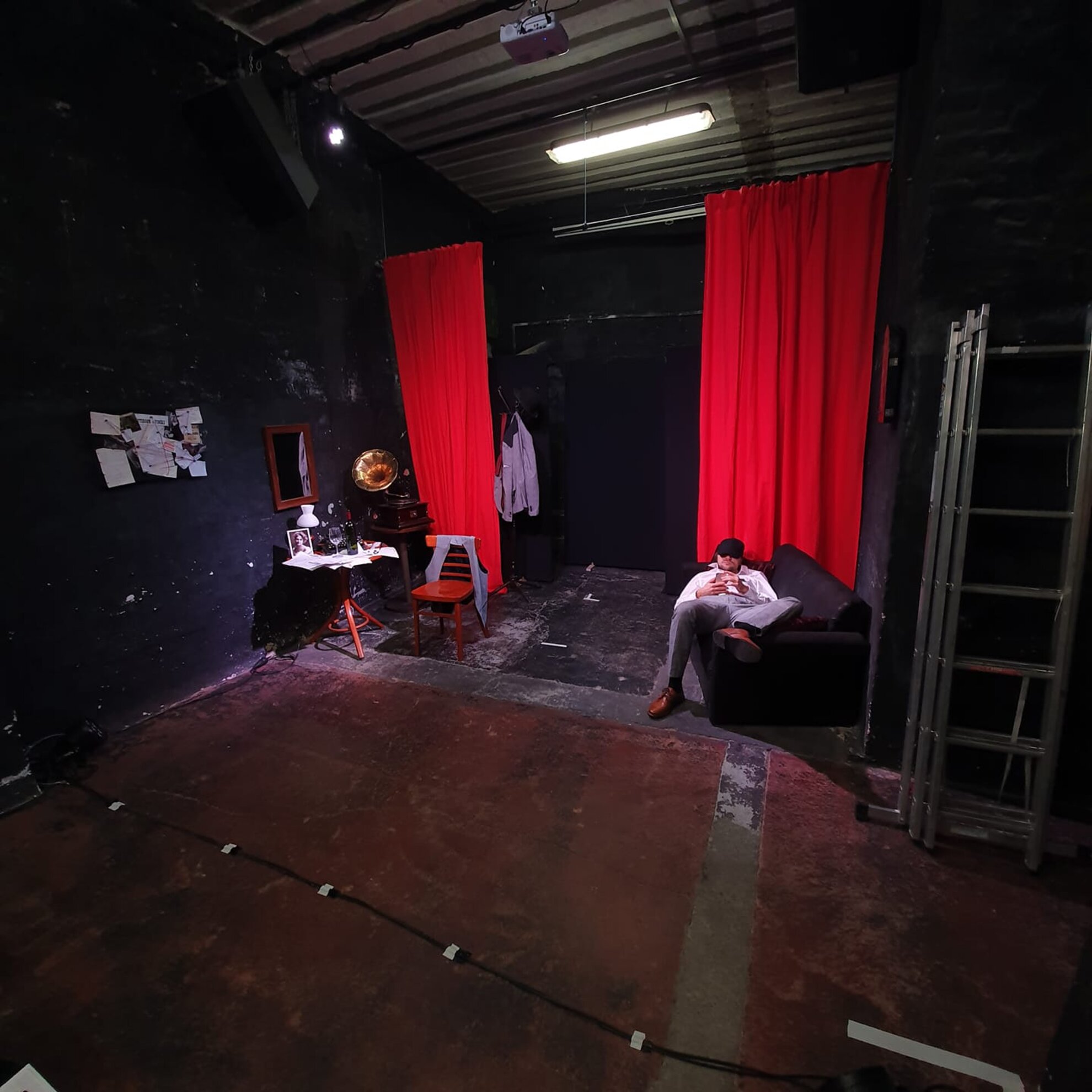
Óvóhely (‘The Shelter’) occupies the site of the once infamous Shanghay nightspot. While venues close and open all the time, here the catering unit a Cold War military nuclear bunker was built in the 1950s. This theatre opened in 2018. It mainly hosts independent performances, concerts and literary events, but also exhibitions and various children’s activities. In many respects, Óvóhely is young in spirit, open to new trends and voices. 1117 Budapest, Bartók Béla út 60
Pinceszínház – Going underground
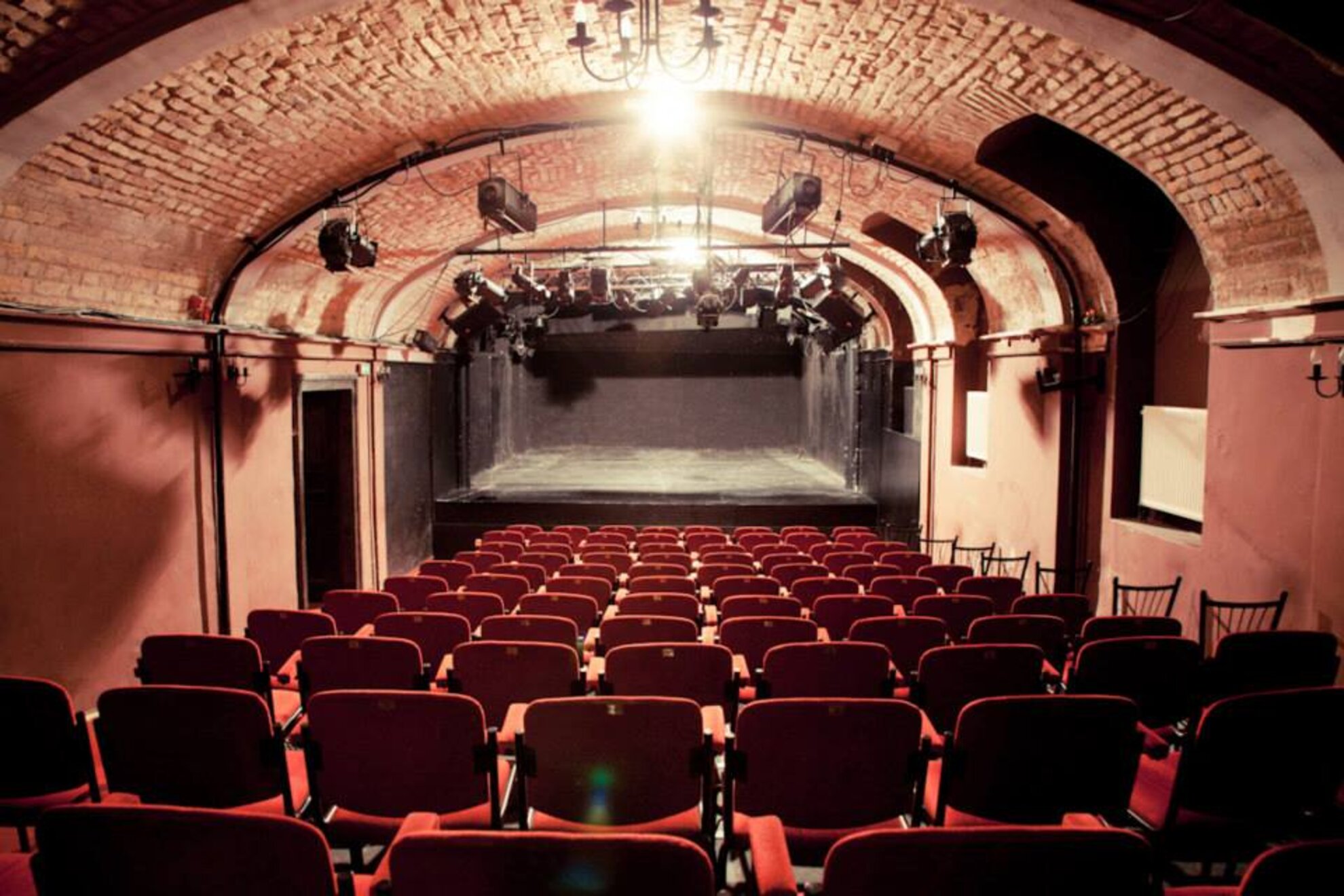
The Pinceszínház (‘Cellar Theatre’) is one of the city’s great theatrical legends as far as venues are concerned. The gigantic building, unveiled in 1875 and rebuilt several times, has two entrances, one from Török Pál utca, the other Ráday. Over the last century and a half, it has been an inn, then a dance venue, while the basement housed a skittles alley, a seniors' club and a puppet theatre, and finally a pub with dancing at weekends. It became a theatre in the mid-1960s, the main venue for am-dram in Budapest, primarily centred around two actors, István Keleti and Éva Mezei. This state of affairs lasted until the late 1980s. The Pinceszínház became a house of culture, with all sorts of music and non-music clubs, with the odd theatrical production thrown in. The situation stabilised in the second half of the 2000s, so today the Cellar Theatre once again hosts performances by amateur and professional companies. FreeSZFE Theatre and film students also use the place, while the Benkó Dixieland Band book it for their monthly music club. 1093 Budapest, Török Pál utca 3
RS9 Színház – The little big theatre
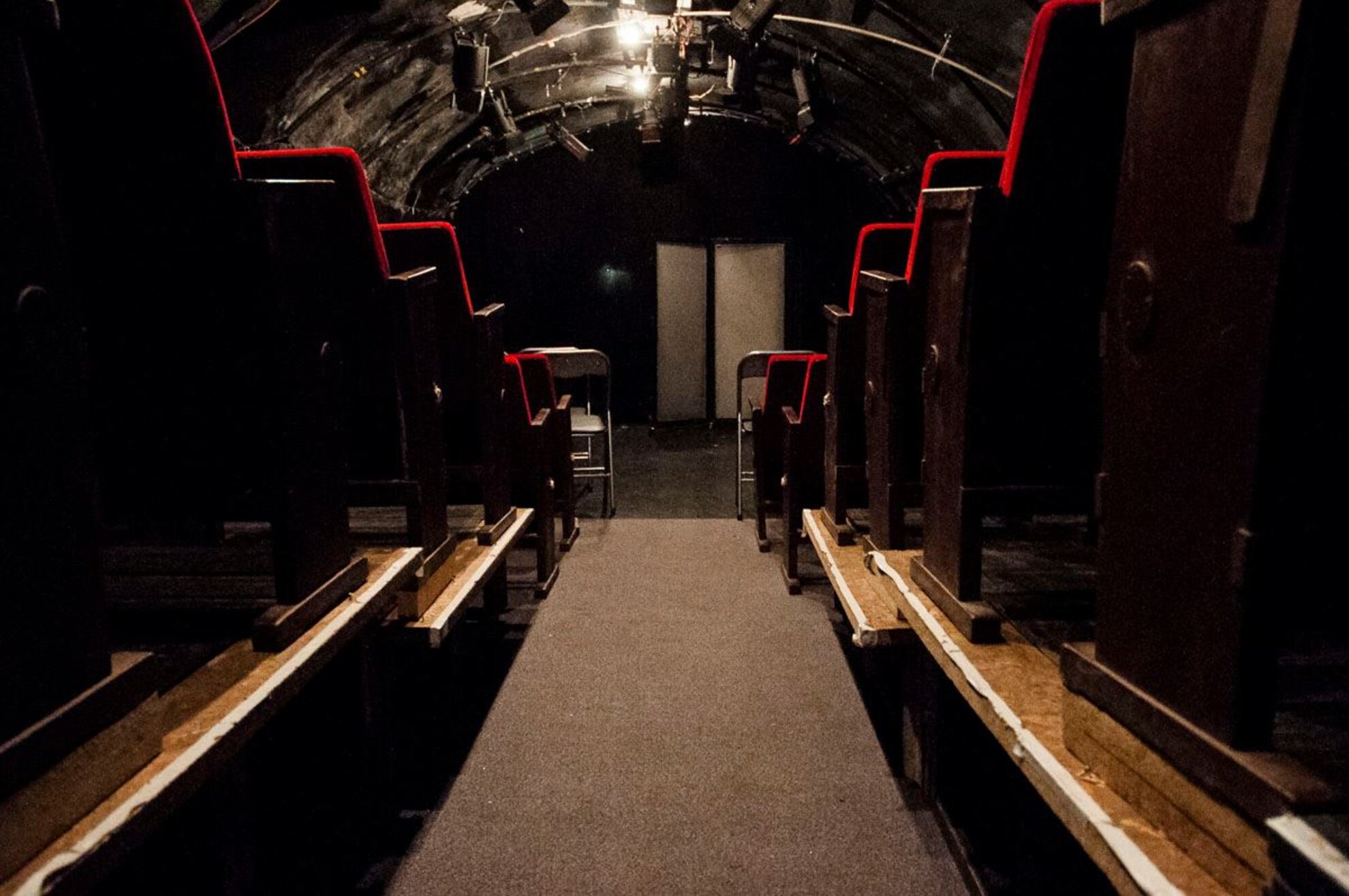
The RS9 Theatre opened in 1990, its name derived from its location on Rumbach Sebestyén utca near the Great Synagogue. They define themselves as the ‘biggest small theatre’, not least because, after their formation, they enjoyed similarly resounding international successes in addition to domestic ones. Opposite the main hall in 2013, they opened a second venue, RS9 + Vallai Garden. Although the repertoire mainly features their own shows for children and adults, they also host a number of outside productions, from smaller companies such as Másik Produkció, Anyaszínház (‘Mother Theatre’) and the Hungarian Anarchist Theatre. 1075 Budapest, Rumbach Sebestyén utca 9
Studio K Theatre – The thrill of the new
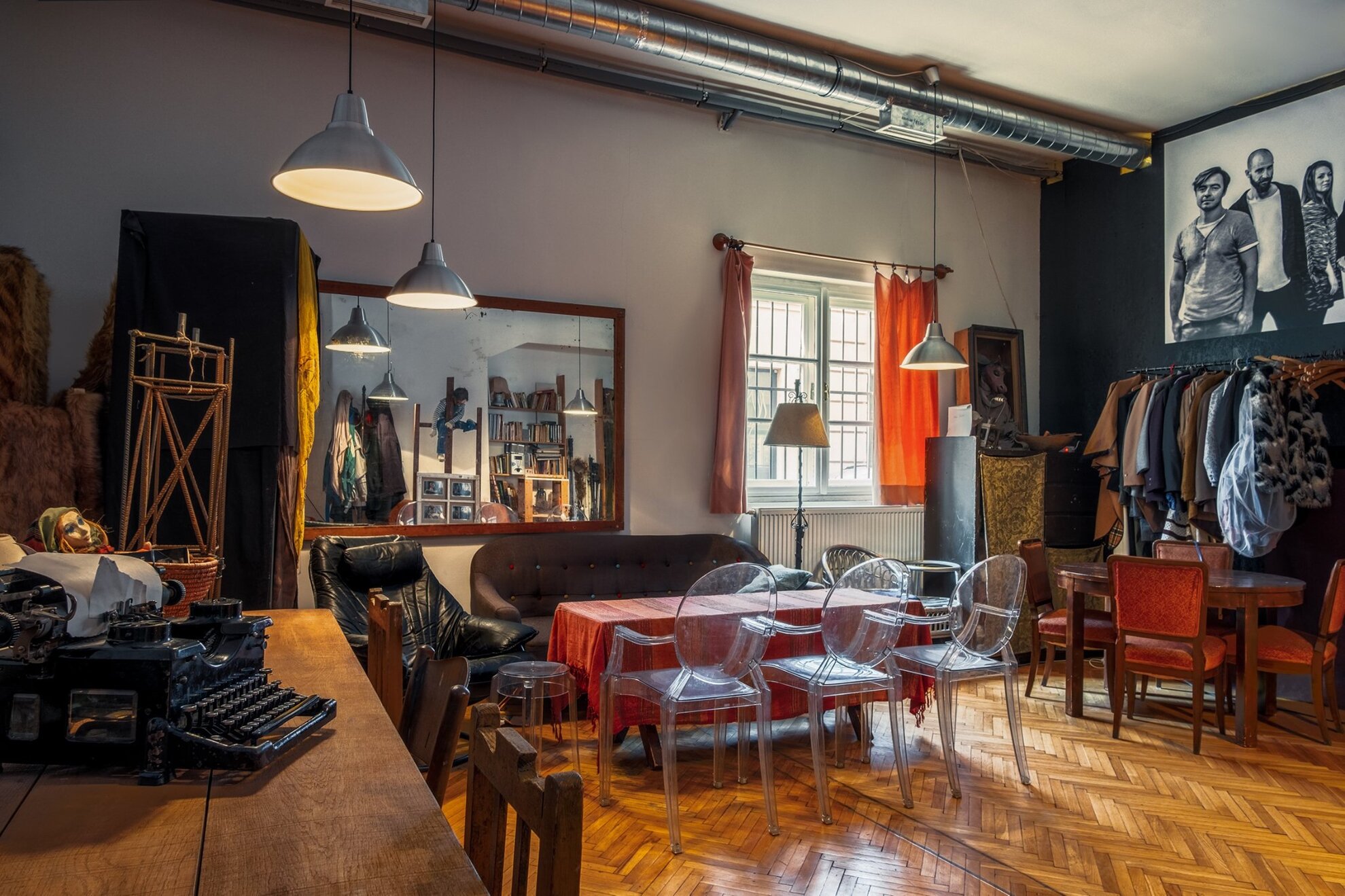
Award-winning actor Tamás Fodor founded Stúdió K, its initial letter primarily referring to the Hungarian word for experimentation, as in training, creativity and workshops. In a story that began in the early 1970s, they performed where they could for about 25 years. Then, in 1995, their operation finally became official, and in 2006 their own theatre opened its doors. Here they perform mostly Hungarian contemporary pieces and a couple of classics, developing them in-house and working closely with other independent companies. Children’s shows are also scheduled. 1092 Budapest, Ráday utca 32
Szkéné – The legend
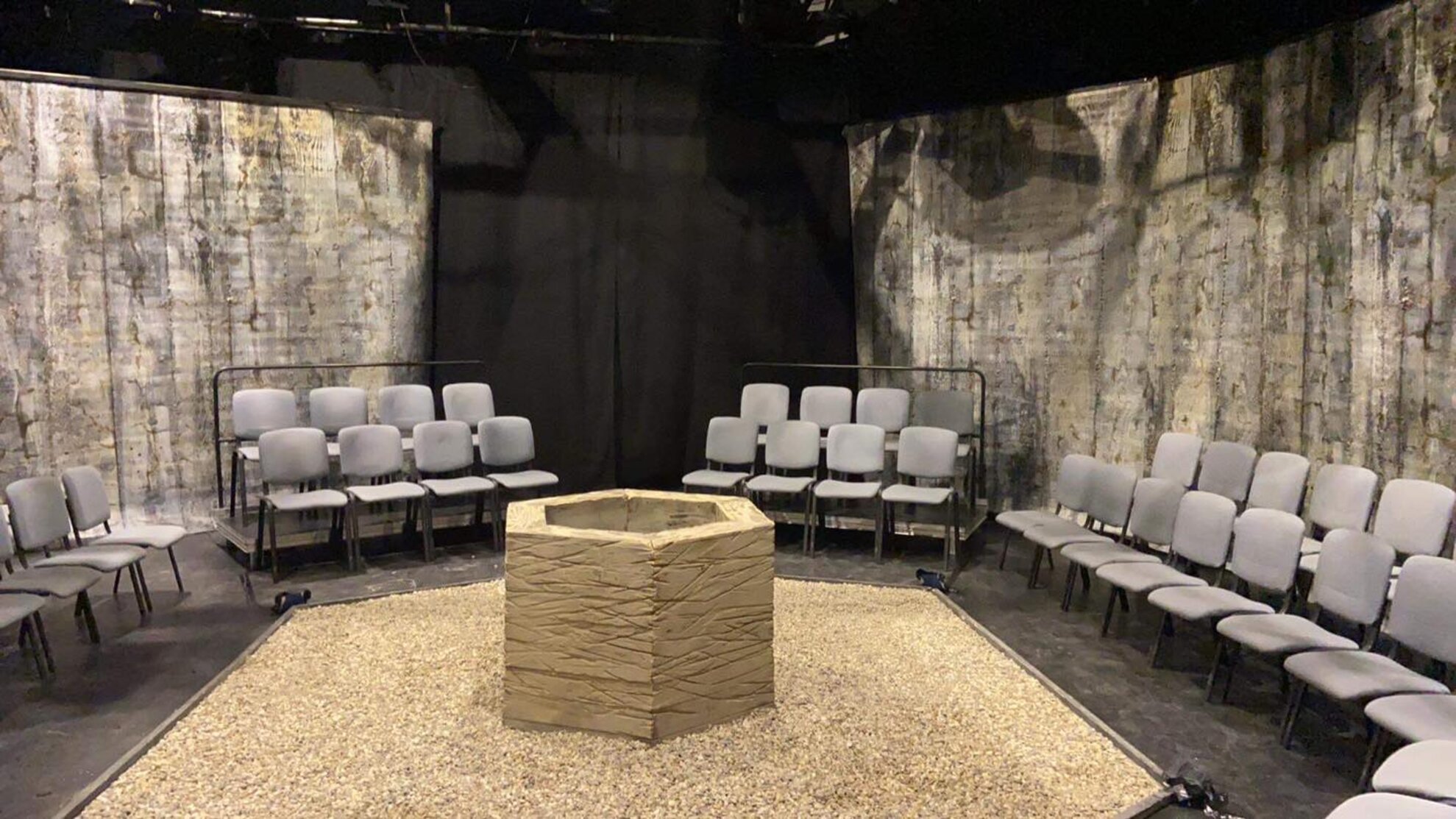
Szkéné, along the Danube, is an alternative acting space that has been operating for more than 50 years, perhaps the most important place of its kind. It opened on 27 March 1970 with a performance of Theomachia by Sándor Weöres. Since then, several pioneering companies have performed here, within the walls of the Technical University. The most famous was Arvisura, founded by István Somogyi, while Béla Pintér's troupe still perform every so often, as well as Auditórium and the Forte Társulat. 1111 Budapest, Műegyetem rakpart 3, Building K
Trafó – Shall we dance?
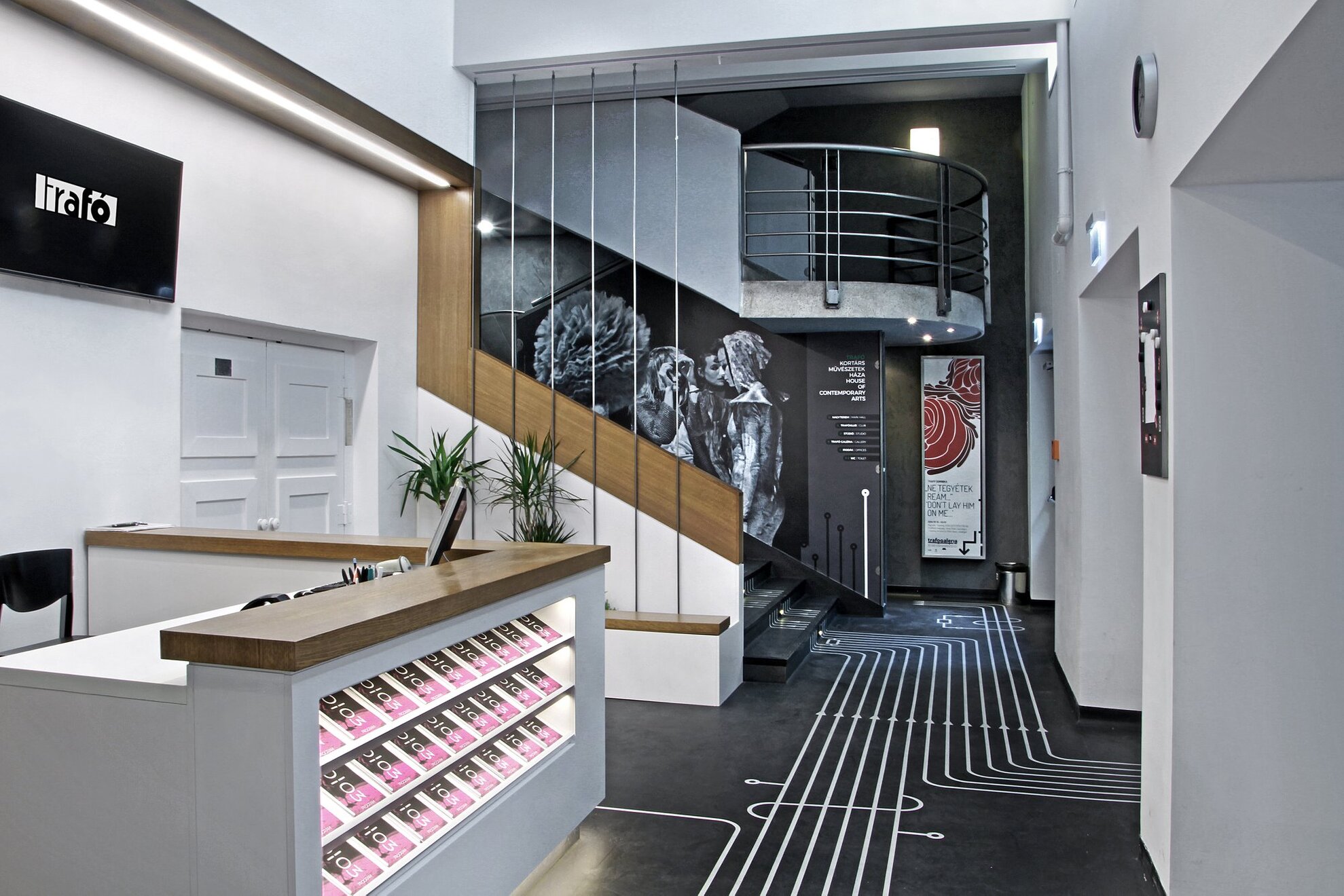
Trafó has long played a vital role in the cultural life of Budapest, after being converted from a former transformer station in the late 1990s. Even before the official opening, there were occasional performances and parties in the cellar-shaped club. But Trafó was never primarily about nightlife, more multi-arts and new trends. Concerts, exhibitions and theatre are scheduled, with dance taking centre stage. These days, the extraordinary troupe Dollár Papa Gyermekei use Trafó as their main performing venue. 1094 Budapest, Liliom utca 41
UP Rendezvénytér – Wild at heart
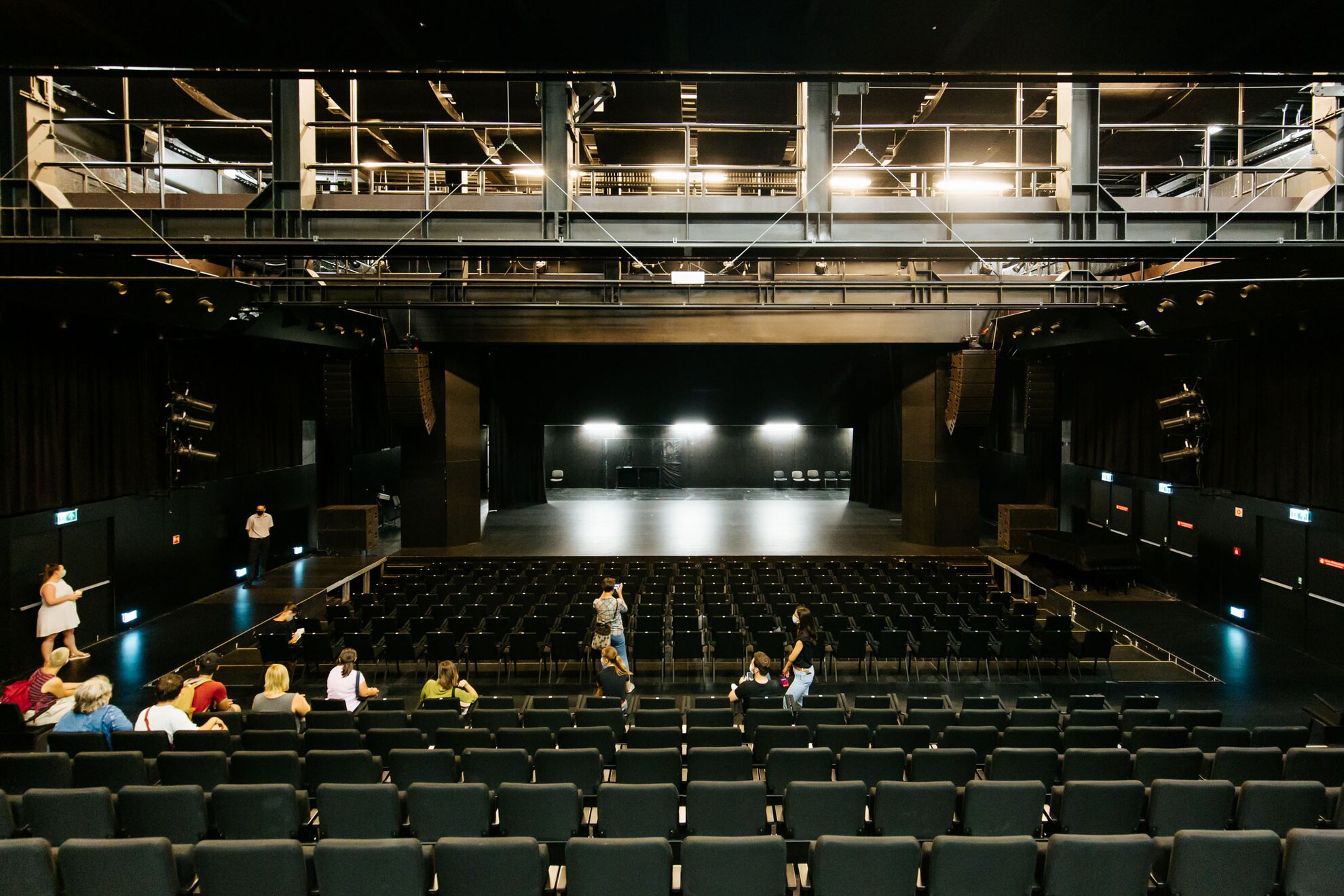
The UP Events Space is a monster of a building right in the heart of working-class Újpest. This cultural paradise created above the district market is huge, an area of 3,000 square metres which includes five venues, the first of which is a modern theatre hall. Although live music and stand-up are also programmed, the main thrust is drama. Nowadays, many followers of Béla Pintér & Company are delighted that this venue exists because, although plays by this theatrical genius can be seen elsewhere, UP has become the number one venue for his premieres. 1042 Budapest, Szent István tér 13-14
